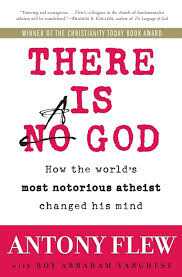Unthinkable: The Islamic thinker who ‘proved’ God exists without Design Theory. Avicenna deserves it, says Prof Peter Adamson.
How did Avicenna ‘prove’ God exists without the help of design theory?
“The full argument is a bit complicated for lay men, but here is a somewhat simplified version.
Avicenna’s proof actually has nothing to do with design, he doesn’t need the idea that the universe is intelligently put together. Instead, he argues from the idea that the things we see around us are ‘contingent’ or merely ‘possible’.
“The idea here is that a contingent thing is something that may either exist or not exist; its nature does not guarantee that it exists.
What Avicenna wants to do is show you that although all the things we experience directly are indeed contingent, there is also something else that exists necessarily, in other words, whose very nature guarantees that it exists.
“To do this, Avicenna points out that since a contingent thing on its own merit could either exist or not exist, it must have some external cause that made it exist – like ‘tipping the scales’ in favor of its existence rather than its non-existence.
“So take me, for instance. I am contingent, meaning that I am the sort of thing that could easily have failed to exist. In fact, at one time I didn’t yet exist, and in the future I will cease existing, that proves I’m not necessary.
“So there must have been a cause, maybe my parents, who brought me into existence.
Now Avicenna observes that the aggregate whole of all contingent things – in other words the physical universe – is also contingent. After all, everything in the universe is contingent, so taken all together as one thing, it too must be contingent. Thus it also needs an external cause, just like I do.
“Since that external cause has to be outside the whole aggregate of contingent things, it cannot itself be contingent.
So it is necessary. Hey presto, we’ve proven that there is a necessary existent which causes all other things! And this, of course, is God.”
How did this argument mark an advance on theological proofs in the Christian world?
“One thing I like about this proof is that it captures, in rigorous terms, a reason that I think actually underlies people’s belief in God.
Effectively, Avicenna is trying to show that when you look around and think, ‘All of this could have failed to exist; why is there something, rather than nothing?’ you are asking a good question.
“The answer to the question is that not everything can be contingent; that is, not everything could have failed to exist.
There must be something that just has to exist, to explain why everything else has wound up existing.
“This contrasts favourably to other medieval proofs, which turn on clever but unconvincing conceptual tricks like Anselm’s ontological argument, or do invoke the intelligent design of the universe, which many people nowadays think is a premise discredited by science.”




